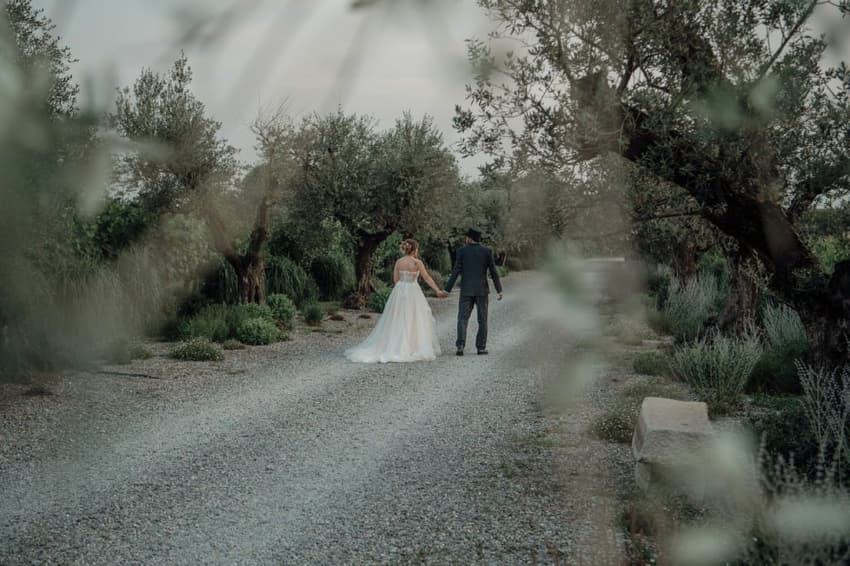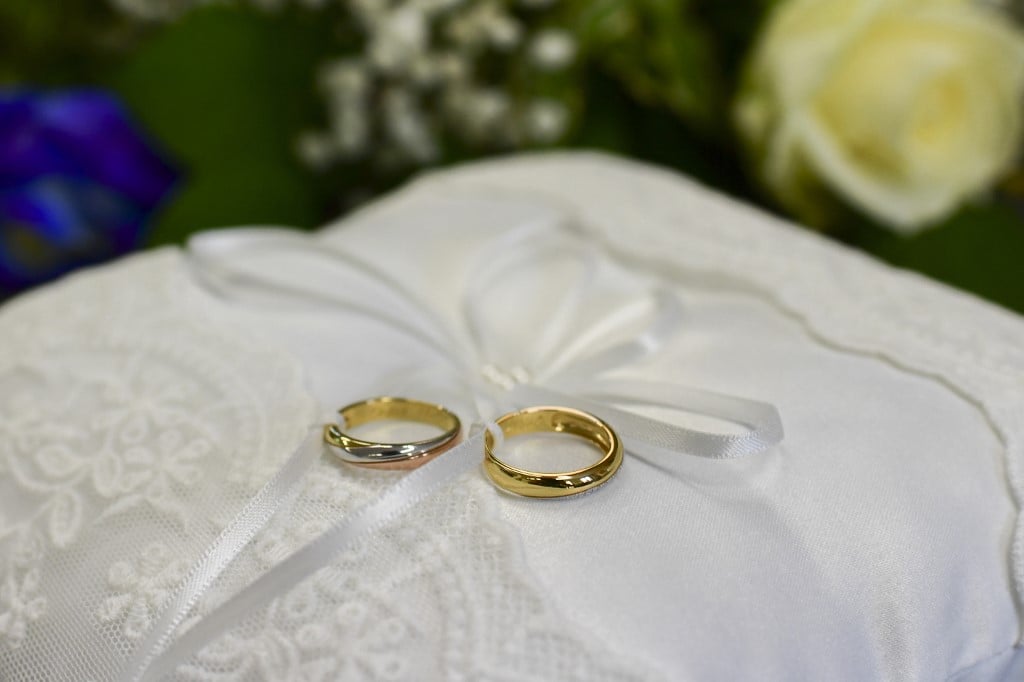Why you shouldn't take your husband's surname in Italy

The custom of women taking their husbands' surnames after marriage doesn't exist in Italy. But if you're considering taking your spouse's last name, here are four reasons why you should think twice.
For some foreign couples, the prospect of a wife taking their husband's surname may be a given. In Italy, however, it is not.
It is very common to see grandmothers with different surnames from their grandchildren and mothers with different surnames from their children. If you take three generations of women in an Italian family (grandmother, mother, and daughter), all of them will in most cases have different surnames.
There is a reason behind this: Italian law. Much like the Netherlands, Italy does not permit a wife in a married couple to legally change her surname to that of her husband (this can only happen in a number of special circumstances, outlined below).
As a result of this, women in Italy are only able to use their husband's surname in social contexts. For the most part, they cannot use their husband's surname in official settings and must sign off on paperwork using their maiden names.
Let's take a look at some reasons why you shouldn't take your husband's surname in Italy.
You have to be an Italian citizen
If you weren't an Italian citizen before marrying your Italian spouse, you will have to wait until you get your Italian citizenship to apply for a name change. If being married is the only way for you to obtain Italian citizenship, you'll have to wait two years before you're able to apply if you reside in Italy and three years if you both live elsewhere. The waiting period halves if you have a child.
If you're able to change your name to your husband's in the country where you are a citizen, that could be one way of getting around the issue. However, it would be a nightmare at passport control and may cause issues with Italian bureaucracy further down the line.
Lots of red tape
This brings us to our second point: bureaucracy.
Italian bureaucracy is daunting when you first apply for documents such as your fiscal code or permit of stay. If by chance you are one of the lucky few who manages to get permission for a surname change, you will have to change your name on all of those documents. It will not happen automatically.

Wedding rings are pictured during a ceremony. Photo by Miguel Medina / AFP
It's also worth noting that a surname change under the law means the replacement of your maiden name and any double-barrelled name you wish to use.
READ MORE: How do you change your surname in Italy after getting married?
Before you reach the acceptance stage for a name change, you must submit a lengthy list of documents by requesting a name change to the Ministry of the Interior through the prefecture (prefettura) covering the area you reside in.
Even after completing all of the relevant paperwork, your application may be rejected if it doesn't fall into one of the special circumstances below.
Strict special circumstances
Wanting your husband's surname is not a good enough reason for a name change; there has to be a more suitable one under Italian law. The special circumstances outlined by Italy's interior ministry include:
- Addition of the surname to avoid its extinction – in this case your spouse must attach a family tree to the request.
- Change of surname after getting Italian citizenship – this can only be done after you have taken the oath. As mentioned above, women who want to change their names must have a marriage certificate.
Even if one of these two special circumstances applies, there is no currently available statistical data showing how many applications are ultimately accepted.
Divorce might change your name again
Under Article 5 of Law 898, a woman loses her husband's surname in the event of a divorce. However, the woman may request to keep it if it is in the interest of her or her children's protection.
Divorce is definitely not the first thing newlyweds think of when getting hitched, but this is an important downside to remember. And to add to injury, you'll have to change all of your documents again.
Is there a way around this?
In a strict sense, no. Having a complete name change is a thorough procedure.
However, there is a little piece of law which allows female spouses to add their spouse's name to their maiden name. Italy's Civil Code outlines: "The wife shall add her husband's surname to her own and retain it during her widowhood until she remarries."
What this means is that you can add the preposition 'in' after your maiden name. It is not the same as a double-barrelled name. It means you have married into that family and it's not a name change as much as it is an addition.
Other than that, you can use your husband's name socially but not officially.
Have you changed your maiden name after marriage in Italy? Let us know about it in the comments below.
Comments (1)
See Also
For some foreign couples, the prospect of a wife taking their husband's surname may be a given. In Italy, however, it is not.
It is very common to see grandmothers with different surnames from their grandchildren and mothers with different surnames from their children. If you take three generations of women in an Italian family (grandmother, mother, and daughter), all of them will in most cases have different surnames.
There is a reason behind this: Italian law. Much like the Netherlands, Italy does not permit a wife in a married couple to legally change her surname to that of her husband (this can only happen in a number of special circumstances, outlined below).
As a result of this, women in Italy are only able to use their husband's surname in social contexts. For the most part, they cannot use their husband's surname in official settings and must sign off on paperwork using their maiden names.
Let's take a look at some reasons why you shouldn't take your husband's surname in Italy.
You have to be an Italian citizen
If you weren't an Italian citizen before marrying your Italian spouse, you will have to wait until you get your Italian citizenship to apply for a name change. If being married is the only way for you to obtain Italian citizenship, you'll have to wait two years before you're able to apply if you reside in Italy and three years if you both live elsewhere. The waiting period halves if you have a child.
If you're able to change your name to your husband's in the country where you are a citizen, that could be one way of getting around the issue. However, it would be a nightmare at passport control and may cause issues with Italian bureaucracy further down the line.
Lots of red tape
This brings us to our second point: bureaucracy.
Italian bureaucracy is daunting when you first apply for documents such as your fiscal code or permit of stay. If by chance you are one of the lucky few who manages to get permission for a surname change, you will have to change your name on all of those documents. It will not happen automatically.

It's also worth noting that a surname change under the law means the replacement of your maiden name and any double-barrelled name you wish to use.
READ MORE: How do you change your surname in Italy after getting married?
Before you reach the acceptance stage for a name change, you must submit a lengthy list of documents by requesting a name change to the Ministry of the Interior through the prefecture (prefettura) covering the area you reside in.
Even after completing all of the relevant paperwork, your application may be rejected if it doesn't fall into one of the special circumstances below.
Strict special circumstances
Wanting your husband's surname is not a good enough reason for a name change; there has to be a more suitable one under Italian law. The special circumstances outlined by Italy's interior ministry include:
- Addition of the surname to avoid its extinction – in this case your spouse must attach a family tree to the request.
- Change of surname after getting Italian citizenship – this can only be done after you have taken the oath. As mentioned above, women who want to change their names must have a marriage certificate.
Even if one of these two special circumstances applies, there is no currently available statistical data showing how many applications are ultimately accepted.
Divorce might change your name again
Under Article 5 of Law 898, a woman loses her husband's surname in the event of a divorce. However, the woman may request to keep it if it is in the interest of her or her children's protection.
Divorce is definitely not the first thing newlyweds think of when getting hitched, but this is an important downside to remember. And to add to injury, you'll have to change all of your documents again.
Is there a way around this?
In a strict sense, no. Having a complete name change is a thorough procedure.
However, there is a little piece of law which allows female spouses to add their spouse's name to their maiden name. Italy's Civil Code outlines: "The wife shall add her husband's surname to her own and retain it during her widowhood until she remarries."
What this means is that you can add the preposition 'in' after your maiden name. It is not the same as a double-barrelled name. It means you have married into that family and it's not a name change as much as it is an addition.
Other than that, you can use your husband's name socially but not officially.
Have you changed your maiden name after marriage in Italy? Let us know about it in the comments below.
Join the conversation in our comments section below. Share your own views and experience and if you have a question or suggestion for our journalists then email us at [email protected].
Please keep comments civil, constructive and on topic – and make sure to read our terms of use before getting involved.
Please log in here to leave a comment.